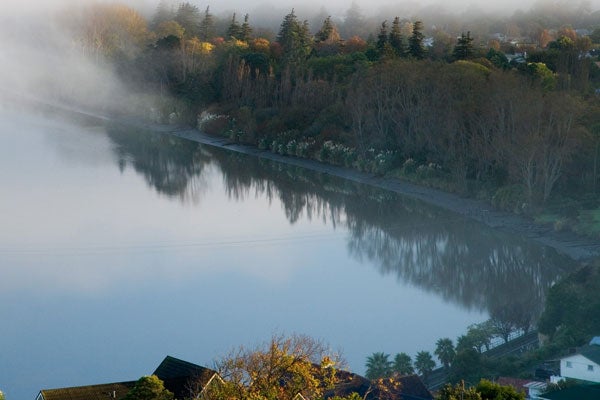New Zealand: Rivers Are People, Too
Andrew Travis /
Homer’s epic The Iliad tells the story of Achilles’s near-fatal encounter with the Xanthus River. After Achilles slays many Trojans in the river, the river rises up in the Trojans’ defense, nearly killing Achilles in the ensuing struggle. While Homer took poetic license in his personification of the river, New Zealand has taken this idea a bit too literally.
In a move that would make the Xanthus River proud, the government of New Zealand and the Whanganui iwi indigenous people recently agreed that the Whanganui River will be legally recognized as a person.
The agreement has given a whole new meaning to the term “natural rights” by literally bestowing rights upon nature. The river will now hold legal status as a person because of its role in sustaining the Whanganui iwi people.
According to a spokesman for the Minister of Treaty Negotiations, the river will be recognized as a person “in the same way a company is, which will give it rights and interests.” The complete details of the agreement have yet to be finalized, so it remains to be seen what rights personhood will entail beyond legal standing in New Zealand’s courts.
This agreement is only the latest installment in the ongoing controversy over defining personhood. Last year, People for the Ethical Treatment of Animals filed a suit on behalf of five orca whales at Sea World, claiming they have been enslaved in violation of the 13th Amendment. In 2008, Ecuador preempted New Zealand by recognizing the legal rights of its mountains and rivers. In fact, the Vilcabamba River in Ecuador has already won a legal suit filed on its behalf against a provincial government.
People do happen to be made up of mostly water, but this is where the similarities end. The Whanganui iwi’s concern that their precious natural resource won’t be protected is understandable, but granting it personhood is clearly not the way to protect the river.
Earth’s natural resources ought to be used wisely, and humans should exercise stewardship of these resources in order to preserve them. Extending the rights of personhood to nature does nothing more than strip personhood of any real meaning and make a mockery of the concept of rights. If we want to protect the environment for the long term, stewardship, not personhood, is the wisest path.
Andrew Travis is currently a member of the Young Leaders Program at The Heritage Foundation. For more information on interning at Heritage, please visit http://www.heritage.org/about/departments/ylp.cfm.

